Knowledge sharing
Knowledge sharing
Actions of Faweu after the exchange
After the exchange, Faweu (implementing partner) took their quick actions and implement their learnings into the project. 3 participants from Faweuu Gloria Auma (field coordinator FAWEU) i. c.w. Aggi Ogili (chairman child protection committee) and Susan Opok (CEO FAWEU) shared their learnings after the exchange visit.


Susan duplicates the “self-actualisation” for girls from the visited Girls Shine program run by the NGO IRC in Kakuma camp. For FAWEU it was and is greatly challenged by having young people engaged without appreciating themselves. Their skills training programme supported by enabling and the second chance education programme supported by UN Women are projects in which they are trying to see how they can through mentorship help the girls appreciate who they are, as they engage with their studies.
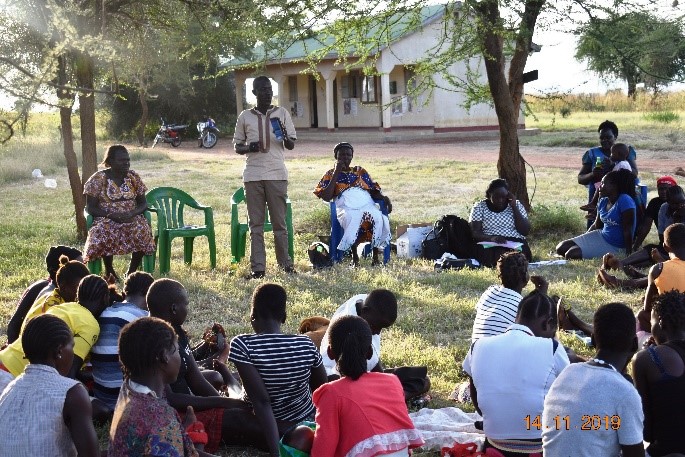
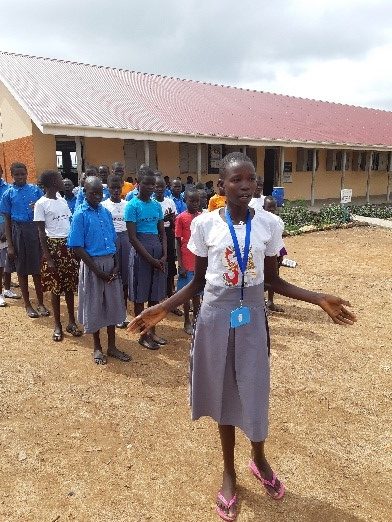
Self-actualisation = “[a] musician must make music, an artist must paint, a poet must write, if he is to be ultimately happy” (Maslow, 1943). Extrapolating from this quote, we can see self-actualization in examples: An artist who has never made a profit on his art, but he still paints because it is fulfilling and makes him happy.
Watch the video about the reflection of Susan, CEO of FAWEU.
VSLA Toolkit
Gloria worked very hard on the transforming and developing of the toolkit for young female refugees saving and loan system that they learned in Kakuma camp The VSLA toolkit is to improve safety and protection for young women by creating income-generating activities and a start of economic independency and women leadership. The VSLA tool kit ( passbooks, record books, calculators, rulers, stamp pads, padlocks, cash box) have been procured for 2 CPC groups, each with 30 members. So far 1 meeting has been held with the VSLA groups of Palabek kal to orient members on VSLA concept ,attended by 24(10 M & 14F) members . In Ogili sub-county, the CPC group has so far saved to the tune of 400,000 UGs.
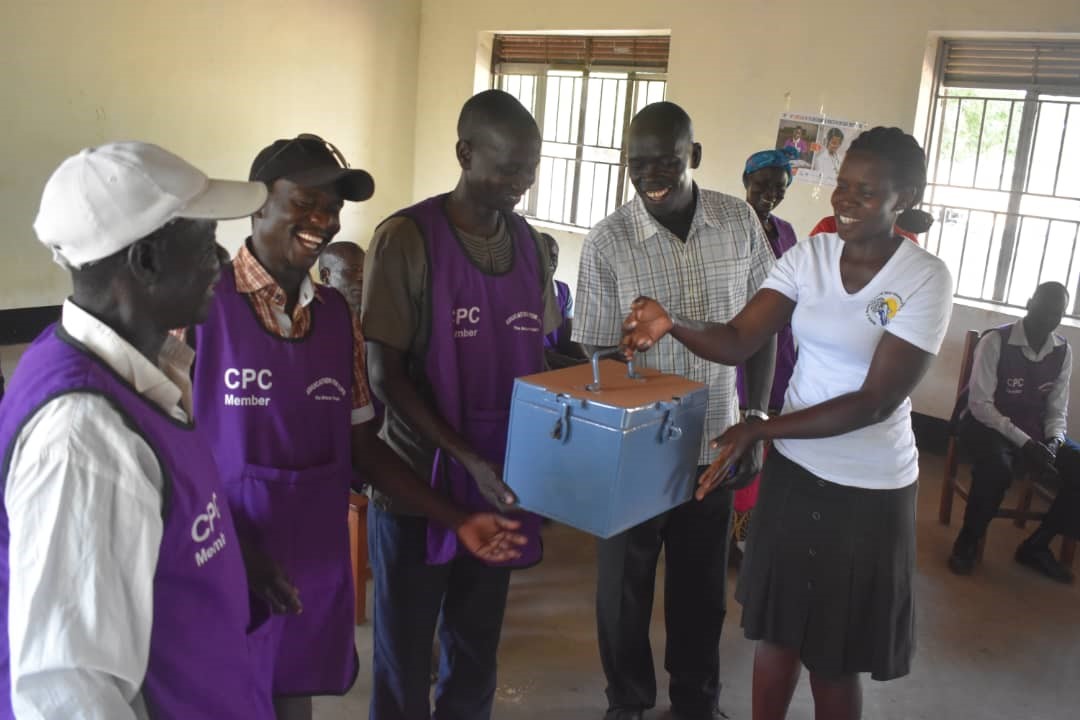
Gloria Auma handing over Village Saving and Loan Association toolkit to child protection committee members at Ogili sub-county during joint monitoring visit by the consortium on the 25th of Feb 2020.
The VSLA methodology. A Village Savings and Loan Association (VSLA) is a group of people who meet regularly to save together and take small loans from those savings. ... The purpose of a VSLA is to provide simple savings and loan facilities in a community that does not have easy access to formal financial services.
Last but not least Faweu staff planned to review their own training manuals for content to implement learnings from the visited project of EMAP (Engaging Men through accountable practices to end SGB. To engage men more as role models for change and bring more gender equity training. After reviewing they will give a 2-day training of patrons/ matrons of child clubs.
Actions of AVSI after the exchange
AVSI staff was very inspired by the digital training for online freelancers (visit to RESI program) that they visited in the Kakuma camp. It was not an easy way but under the leadership of Calvin Opio (he participated in the Kakuma learning exchange) they built step by step the conditions to implement this in their BRICE activities for technical skill training. Furthermore, they received the manual and learning document to set up fruitful remedial teacher programs from NRC (Norway rescue committee) working in Kakuma camp.
With some extra funding from Oxfam Ibis, AVSI was able to build a classroom block with two classes. AVSI has already furnished them with desk and learners started using them from February 2020. The staff house is even complete keys handed over already to AVSI. This classroom will give a safe and protected space for technical training on computers and laptops for online freelancers.
We found an external Ugandan expert from CEFORD- Aruabits to give support on the market survey for income-generating activities for online freelancers in Palabek. Based on that they will pilot a tailor-made toolkit and give a ToT to AVSI staff. The idea is to start the pilot in May 2020. Oxfam Uganda will give budget support to AVSI in manpower for technical skill training for online freelancers.
Implementation of the Remedial teaching learnings is in hands of Calvin and the 2 involved AVSI field staff who participated in the Kakuma learning visit.
Implementation of learning from Kakuma refugee camp in Uganda
AVSI succeed in setting up the first E-skill pilot in Palabek!!!
AVSI starts the first pilot in November 2020 for 20 youth for 03 months. They produced and shared 50 copies of application forms for the training with the Refugee leaders and Sub-county leadership. They received over 100 applications for the same (youth photocopied the forms on their own) AVSI has shortlisted 20 youth to begin with the pilot training and generated a commitment for caregivers/ parents to ensure support to the youth and commitment in completing the course.
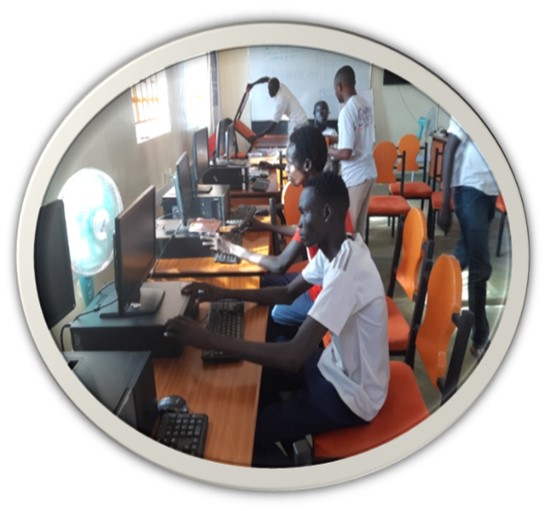
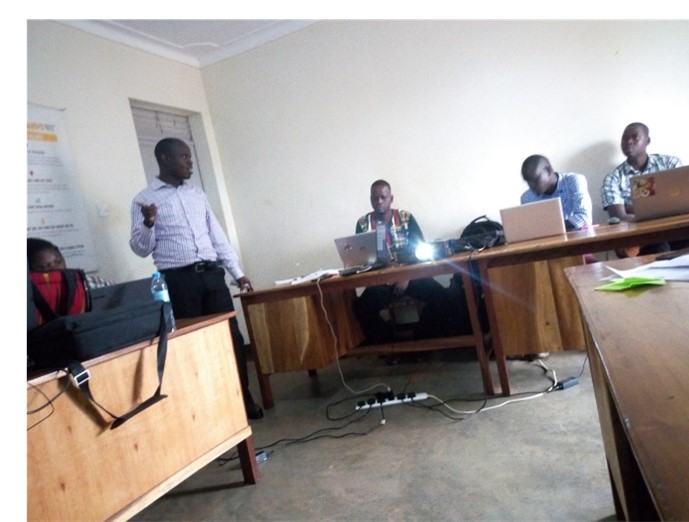
How did it work?
Step 1 - Hiring local experts
OXFAM contracted AruaBits to support AVSI in developing and deploying an e-Skills Tool on digital skills that enables youngsters to leverage technology to deliver e-jobs. Ceford-Aruabits, a youth technology hub is based in Arua Uganda. The technology hub provides open spaces for youth training in employable skills i.e. digital skills for jobs (digital design, digital motion graphics, web programming, and development etc.) and life skills (knowing who you are, business skills, SRHR etc.). Graduates from Aruabits hub are placed for internships with private sector employers.
Step 2 - Mini field survey
To ensure the e-Skills toolkit is context-appropriate, a mini field survey was undertaken that looks at: Youth (vulnerability, interest and level of education) and Labour market.
Some of the findings are;
- Limited access to ICT services: According to the field report 69% of youths have no knowledge and skills in computer application coped with the level of education with the female making the majority.
- Youth are interested in undertaking ICT training and suggested how they will use the skills for.
- Market for ICT skills and services is available however the market where the target beneficiaries are located remains largely untapped. Gulu City and Kitgum Municipality are the immediate employers market.
- Key Skills employers need are Digital designers, Video Editors, and Producers, Data Entrants, Social media marketers etc.
Step 3 - Developing the ToT Manual for E-Skills Toolkit
- Module 1: Starting your Digital Journey: enables a beginner to acquire digital skills so that they can participate and engage in society and fulfil personal needs in the digital age.
- Module 2: Connecting online with others: This module focuses on empowering youngsters with skills of working and communicating with others on social media
- Module 3: Designing for Print and Web (specialization): Digital designer modules provide skills in creative designer skills for social media, web and print media.
- Module 4: Creating a video for business (specialization): This module equips youngsters to create marketing videos for businesses, events, artists etc.
- Module 5: E-Skills as a Business: This module prepares youngsters for the entrepreneurial journey by equipping them with life and business skills.
Step 4- E-Skills Toolkit: Training of Trainers
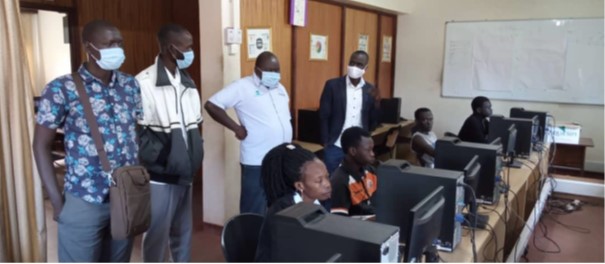
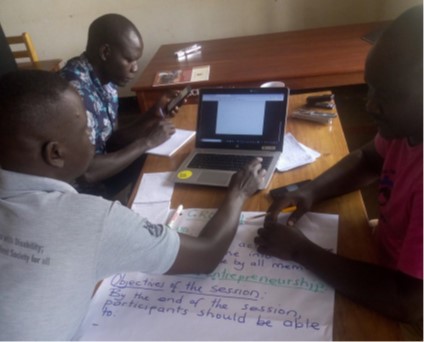
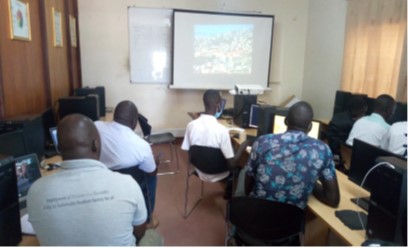
Workshop aims
- The ToTs have introduced trainers to the various components of the e-skill toolkit and training methodology
- ToT had a mock training for 12 youth to validate the skills uptake and confidence
- The mock training also supported validation of the E-skill toolkit designed.
Step 5 E-Skills Toolkit: Mock Training with youth:
Workshop aims
- This key activity aims at testing the lesson flow and the target group’s understanding as well as validating uptake of skills and methodology by ToTs. The youth were taken through an ideal of the training sessions; there was great enthusiasm witnessed among the youth keeping Trainers so very much motivated too.
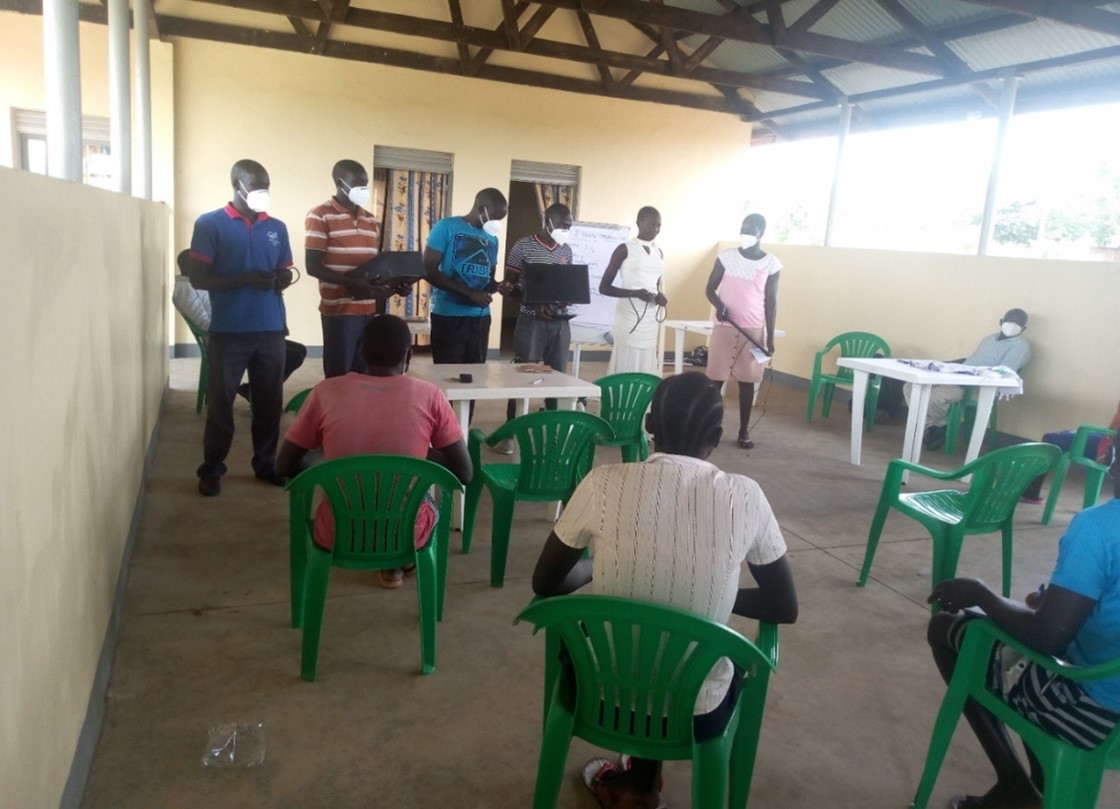
Step 6 – Pilots is running and there is huge potential for scaling afterwards.
